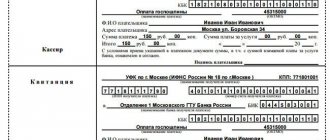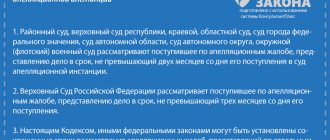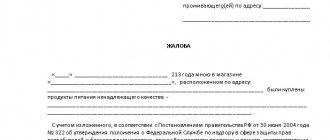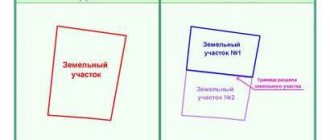If, after the first cassation, you do not agree with the decision of the regional court, then take the chance to protect your interests in the highest judicial body of Russia - the Supreme Court. This court is the second cassation instance, which considers complaints in civil cases of all constituent entities of the Russian Federation. For this purpose, civil procedural legislation establishes a certain appeal procedure, filing deadlines and requirements for the content of a cassation appeal.
In this article, we share our experience of appealing to the Supreme Court and provide proven legal advice: how to file a complaint; what to write in the cassation; what are the deadlines for submission? chances of winning the lawsuit. As well as a detailed action plan for the course of the trial in the RF Armed Forces.
What is an appeal
An appeal is a review of decisions made by the court of first instance. The appeal process is possible only at the initiative of the interested party.
All participants in the process can file an appeal: the plaintiff, the defendant (as well as their legal representatives), the prosecution (prosecutor) and the defense (lawyer). Persons who did not take part in the trial, whose interests were violated, also have the right to appeal the decision of the court of first instance.
The appeal process can only be initiated by filing the appropriate legal document - an appeal. A party to a lawsuit who is not satisfied with the results of the consideration of the case draws up and submits this document according to certain rules:
- An appeal can only be filed against a decision of the court of first instance that has not yet entered into legal force. In most cases, the parties are given 30 days from the date of official announcement of the decision to challenge the results of the trial. However, if the case was considered in a simplified manner, the decision comes into force 15 days from the date of its announcement.
- The complaint is sent to a higher court.
- The period for appeal, the specifics of registration and the content of the appeal document are enshrined in Chapter 34 of the Arbitration Procedure Code of the Russian Federation and in Chapter 39 of the Code of Civil Procedure of the Russian Federation.
Particular attention should be paid to the consideration of the case in absentia. In this case, the court hearing takes place without the participation of the plaintiff and the defendant. The parties to the proceedings are notified of the results by mail. The defendant has the right to demand the cancellation of the decision within 7 days from the date of its receipt (in accordance with paragraph 1 of Article 237 of the Code of Civil Procedure of the Russian Federation). A month is given to appeal the default decision. In this case, the moment of calculating the period for filing an appeal is considered to be the last day of the period allotted for canceling the decision in absentia.
Many citizens who have not previously encountered the judicial process and do not have sufficient legal knowledge confuse the concepts of appeal and cassation.
Appeal and cassation complaints do have a number of common features. The purpose of appealing these documents is one - to cancel the decision of the court of first instance. The rules for filing an appeal and a cassation complaint are practically no different from each other, and the circle of persons who have the right to file a complaint is identical.
The main distinctive feature of these appeals, which is worth paying attention to, is the fact that the decision of the court of first instance has entered into legal force. An appeal is filed only against a decision that has not entered into legal force. A cassation appeal is a challenge to an existing decision. In addition, the appeal process allows new evidence and materials to be added to the case.
Article 391.2 of the Code of Civil Procedure of the Russian Federation. Procedure and deadline for filing supervisory complaints and presentations (current version)
See in more detail: decision of the European Court of Human Rights of May 12, 2015 on the admissibility of complaint No. 38951/13 “Robert Mikhaylovich Abramyan v. Russian Federation”, complaint No. 59611/13 “Sergey Vladimirovich Yakubovsky Yakubovskiy) and Alexey Vladimirovich Yakubovskiy (Aleksey Vladimirovich Yakubovskiy) against the Russian Federation.”
The Constitutional Court of the Russian Federation has repeatedly indicated in its decisions that the right to judicial protection, as guaranteed by Art. 46 of the Constitution of the Russian Federation does not imply the possibility for a citizen to choose, at his own discretion, specific forms and methods of such protection, which are established by federal law. Thus, it is assumed that interested parties have the right to carry out procedural actions within the framework of the protection of a violated or contested right or an interest protected by law only in a certain manner, in particular in compliance with the requirements for filing a supervisory complaint.
———————————
See, for example: Determination of the Constitutional Court of the Russian Federation of October 25, 2021 N 2284-O “On the refusal to accept for consideration the complaint of the limited liability company “ROSHKOSH” for violation of constitutional rights and freedoms by part four of Article 112 of the Civil Procedure Code of the Russian Federation” .
3. At the same time, according to the position of the Constitutional Court of the Russian Federation, the presence of a legally established period within which interested parties must decide to go to court to appeal a court decision cannot be considered as an obstacle to their exercising the right to appeal such an act. If persons are unable to exercise their right to perform procedural actions within the prescribed period for good reasons, the institution of restoration of procedural deadlines acts as a guarantee for them.
———————————
See: Determination of the Constitutional Court of the Russian Federation dated October 26, 2021 N 2430-O “On the refusal to accept for consideration the complaint of citizen Oleg Mikhailovich Varlamov about the violation of his constitutional rights by part three of Article 167 and part two of Article 376 of the Civil Procedure Code of the Russian Federation.”
From July 30, 2021, Federal Law No. 260-FZ of July 29, 2021, supplemented the commented article with Parts 3 and 4, expanding the possibilities for filers of supervisory complaints and submissions to appeal to a supervisory court. In contrast to the previously existing legislation, which required submitters of supervisory complaints and submissions who missed the deadline for filing a supervisory court appeal to the court of first instance with an application to restore such a procedural deadline, the commented provisions have significantly simplified this procedure. According to Part 3 of the commented article, an interested person, filing a supervisory complaint or presentation directly to the Supreme Court of the Russian Federation, has the right to simultaneously submit a request to restore the missed deadline for filing a supervisory complaint or presentation.
It should be noted that this norm came into force from the date of official publication of the Federal Law, i.e. from July 30, 2021. In judicial practice, questions arose in connection with the application of this rule earlier than the designated date.
Example: On July 26, 2021, plaintiff A. received an application to restore the missed procedural deadline for filing a complaint against the Decree of the Babushkinsky District Court of Moscow dated October 12, 2016, and the Appeal Ruling of the Moscow City Court dated January 12, 2021.
By the ruling of the Babushkinsky District Court of Moscow dated October 20, 2021, the proceedings to consider A.’s application to restore the missed procedural deadline for the cassation appeal were terminated. Terminating the proceedings on A.’s application to restore the missed procedural deadline for a cassation appeal, filed on July 26, 2021, the court of first instance proceeded from the fact that it did not have the right to consider an application to restore the procedural deadline for filing a cassation appeal to the judicial panel of the Supreme Court of the Russian Federation, while was guided by the provisions of Part 4 of Art. 112 Code of Civil Procedure of the Russian Federation as amended. Federal Law of July 29, 2021 N 260-FZ.
A. appealed to the Judicial Collegium for Civil Cases of the Moscow City Court with a request to cancel this Determination. The Moscow City Court, having checked the case materials, listened to the parties, and discussed the arguments of the private complaint, considered the appealed Determination subject to cancellation.
In accordance with Art. 2 of the Federal Law of July 29, 2021 N 260-FZ, this Federal Law comes into force on the date of its official publication. Official publication was made on the official Internet portal of legal information https://www.pravo.gov.ru on July 30, 2021.
Considering that the legislator has not stipulated that the provisions established by Federal Law No. 260-FZ of July 29, 2021 can be applied to legal relations that arose before it entered into force, there are no grounds for its application in accordance with A.’s stated requirements for the restoration of missed procedural The court of first instance did not have a deadline for a cassation appeal of July 26, 2021.
Also, the court of first instance, when resolving A.’s petition, did not calculate procedural deadlines.
Incorrect application of the Law, which is not subject to application, incorrect calculation by the court of the period for cassation appeal and, as a consequence, the incorrect conclusion of the court regarding the termination of proceedings to consider A.’s application to restore the missed procedural period for cassation appeal, deprived her of the opportunity to timely appeal court decisions to the Judicial Collegium for Civil Cases Supreme Court of the Russian Federation, which led to the deprivation of her right to access to justice, guaranteed by the Constitution of the Russian Federation.
Under such circumstances, the appealed Determination cannot be considered legal and justified, and therefore it was canceled (see the Appeal Determination of the Moscow City Court dated December 8, 2021 in case No. 33-49499/2017).
The legislator in the commented norm not only provides interested parties with such an opportunity, but also establishes general rules for the consideration of such applications by a judge of the Supreme Court of the Russian Federation.
Firstly, such applications are considered in a court session by a judge of the Supreme Court of the Russian Federation alone. The Constitutional Court of the Russian Federation has repeatedly indicated that the sole consideration by a judge of an application for the restoration of a missed procedural period does not violate the rights and legitimate interests of citizens, since when resolving the issue of restoring a missed procedural period, the court does not reconsider the civil case and does not check the legality and validity of the decision of the court of first instance.
———————————
See: Determination of the Constitutional Court of the Russian Federation of January 29, 2009 N 125-О-О “On the refusal to accept for consideration the complaints of citizen Yuri Borisovich Borisov about the violation of his constitutional rights by the provisions of Articles 16, 17, 20 and 338 of the Civil Procedure Code of the Russian Federation "
Secondly, an application to restore the missed deadline for filing a supervisory complaint or presentation, in contrast to the general rules established by Art. 112 of the Code of Civil Procedure of the Russian Federation, is considered by a judge of the Supreme Court of the Russian Federation not only in the absence of the persons participating in the case, but even without their notification. The legal provisions under consideration, as stated in the explanatory note to the draft Federal Law N 1134278-6 “On Amendments to the Civil Procedure Code of the Russian Federation” (on improving the procedure for considering civil cases), are aimed at implementing the principle of procedural economy in civil proceedings and are aimed at increasing efficiency of justice. In addition, these changes are intended to unify the procedural legislation applied by courts of general jurisdiction when considering cases in civil proceedings, administrative proceedings and when considering cases by arbitration courts.
The result of consideration of an application for restoration of a missed deadline for filing a supervisory complaint or presentation, as indicated in the commented norm, is a ruling by a judge of the Supreme Court of the Russian Federation to restore such a deadline or refuse it.
4. At the same time, the current procedural legislation provides for the possibility of restoring a missed procedural deadline if there are reasons for missing this deadline, recognized by the court as valid. Provisions of Part 4 of Art. 112 of the Code of Civil Procedure of the Russian Federation, as noted by the Constitutional Court of the Russian Federation in its rulings, do not imply arbitrary application of the provisions contained therein and are aimed at expanding the guarantees of judicial protection of the rights and legitimate interests of participants in civil proceedings. The question of the possibility of reinstating the missed procedural period for persons participating in the case is decided by the court in each specific case on the basis of establishing and examining the factual circumstances of the case within the limits of the discretion granted to it by law. At the same time, a guarantee of an objective and impartial consideration by the court of the issue of restoring the time limit is the procedure for appealing the court’s ruling on the restoration of the procedural time limit or the refusal to restore the missed procedural time limit.
———————————
See: Rulings of the Constitutional Court of the Russian Federation dated May 26, 2021 N 969-O “On the refusal to accept for consideration the complaint of citizen Lyudmila Nikolaevna Novikova about the violation of her constitutional rights by parts one and four of Art. 112 of the Civil Procedural Code of the Russian Federation”, dated October 25, 2021 N 2284-O “On the refusal to accept for consideration the complaint of the limited liability company “ROSHKOSH” about the violation of constitutional rights and freedoms by part four of Article 112 of the Civil Procedural Code of the Russian Federation.”
The specified period can be restored only in exceptional cases when the court recognizes valid reasons for missing it due to circumstances that objectively exclude the possibility of filing a cassation or supervisory appeal within the established period (serious illness of the person filing the complaint, his helpless condition, etc.). Based on the analysis of judicial practice, valid reasons for missing a procedural deadline include those circumstances that prevented the execution of the relevant procedural action or excluded its timely completion. In this case, not only circumstances related to the individual, such as serious illness, helpless state, illiteracy, etc., but also circumstances that objectively prevented a person who conscientiously use his procedural rights from exercising the right to appeal a court decision can be recognized as valid reasons. within the period established by law, in particular, failure by the court to comply with the rules established by law regarding the sending of judicial notices and copies of judicial acts to persons participating in the case, if such violations led to the impossibility of preparing and filing a complaint within the period established for this. In particular, such circumstances may include, inter alia, the time spent on delivering the appealed judicial act to the applicant after its issuance, on forwarding the supervisory complaint by the postal organization to the court from the moment it was delivered to the post office, as well as on delivering to the applicant a copy of the decision issued based on the results of consideration of such a supervisory appeal of a judicial act from the moment of its issuance, since the applicant, before receiving the judicial act, does not have the opportunity to familiarize himself with its contents and submit to a higher court the documents necessary for appealing court decisions. At the same time, the court must also take into account the need to have a reasonable period of time for familiarizing with the judicial act of the person who received it, as well as for preparing documents (see, for example, Resolution of the Supreme Court of the Russian Federation of November 15, 2021 No. 36-KG16-11, dated October 10, 2016 N 34-KG16-10).
An important point in the exercise of the right to restore the missed procedural period is also the fact that such circumstances (related to the personality of the applicant, as well as other circumstances beyond the control of the person, due to which he was deprived of the opportunity to timely file a cassation appeal in court) took place in period no later than one year from the date of entry into force of the appealed court decision. The question of the possibility of reinstating the missed procedural period is decided by the court in each specific case on the basis of establishing and examining the factual circumstances of the case and assessing the evidence presented by the parties. Consequently, if there are good reasons for missing the three-month period established by the commented norm for appealing court decisions in the manner of supervision and applying to the court with a request to restore the missed procedural period, this period can be restored.
Example: By the decision of the Kholm City Court of the Sakhalin Region, left unchanged by the cassation ruling of the judicial panel for civil cases of the Sakhalin Regional Court, A. was refused to satisfy the claims against Sakhalin-Shelf-Service LLC.
A. filed a supervisory appeal against these court decisions to the Judicial Collegium for Civil Cases of the Supreme Court of the Russian Federation, which was returned to the applicant without consideration on the merits due to missing the deadline established by law for filing a supervisory appeal. The Determination explained that the plaintiff has the right to apply to the court that considered the case at first instance with an application to restore the missed procedural deadline, indicating good reasons for missing the deadline established by law.
In connection with the above, A. appealed to the court of first instance with an application to restore the missed procedural deadline for filing a supervisory appeal, citing the fact that she was deprived of the opportunity to timely appeal the above court decisions for good reasons. By the ruling of the court of first instance, A.’s application was left unsatisfied, and the reasons for the absence were recognized as disrespectful. This Determination was left unchanged by the court of cassation, but it pointed out that the conclusion of the trial court that A. had missed the deadline for filing a supervisory appeal was erroneous. At the same time, the cassation instance came to the conclusion that A. had not missed the deadline for filing a supervisory appeal, and therefore there were no grounds for his reinstatement. A supervisory appeal was filed against these court decisions.
The Judicial Collegium for Civil Cases of the Supreme Court of the Russian Federation found the complaint to be satisfied, since the conclusions of the courts of the first and second instances are based on the incorrect application of procedural law and actually deprive A. of the right to access to justice guaranteed by the Constitution of the Russian Federation, as well as the opportunity to restore the violated right. Canceling the above court decisions, the Judicial Collegium for Civil Cases of the Supreme Court of the Russian Federation, taking into account the insignificant period of missing the deadline for filing a supervisory complaint (taking into account holidays and postal transit times), as well as the inadmissibility of establishing excessive legal and practical barriers to access to justice, considered it possible to restore A. the procedural period for filing a cassation appeal (see Ruling of the Supreme Court of the Russian Federation of March 23, 2015 No. 64-KG14-10).
It should be noted that an exception to the three-month period specified by the commented norm provided for a supervisory appeal are the provisions established by Art. 391.11 Code of Civil Procedure of the Russian Federation (see paragraph 4 of the commentary to this article).
5. Another guarantee of the exercise of the right to appeal to a supervisory court outside the deadline for filing a supervisory complaint or presentation, which simultaneously serves the purposes of procedural economy, is the innovation enshrined in Part 4 of the commented article. The above-mentioned Federal Law of July 29, 2021 N 260-FZ established a different, in contrast to the previously valid, mechanism for appealing the ruling of a judge of the Supreme Court of the Russian Federation on the restoration of a missed deadline or on the refusal to restore it. In the commented norm, the right to cancel rulings of a judge of the Supreme Court of the Russian Federation on restoring a missed deadline for filing a supervisory complaint, presentation or refusing to restore such a deadline is granted to the Chairman of the Supreme Court of the Russian Federation or his deputy.
In the norm under consideration, the legislator, having assigned this important power to the highest officials of the Supreme Court of the Russian Federation, did not determine the procedure for filing a complaint against the ruling of a judge of the Supreme Court of the Russian Federation to restore the missed deadline for filing a supervisory complaint or presentation, as well as the procedure for considering such a complaint. It appears that the right to appeal a determination to restore the missed deadline for filing a supervisory complaint or presentation belongs to the interested person who was denied restoration of the procedural deadline. However, the wording used by the legislator in the commented norm, “the right to disagree,” seems to imply an initiative on the part of the Chairman of the Supreme Court of the Russian Federation or his deputy, in particular with regard to the definition by which the period for filing a supervisory complaint or presentation is restored.
Taking into account the fact that the legislator does not establish any special rules for considering a complaint against a ruling on the restoration of a missed procedural period (refusal to restore), it seems that the Chairman of the Supreme Court of the Russian Federation or his deputy individually considers such complaints without notifying interested parties and without their participation . The result of the review is a determination to refuse to restore the missed deadline for filing a supervisory complaint or presentation or to restore it.
Based on the fact that the review by the Chairman of the Supreme Court of the Russian Federation or his deputy of the ruling of a judge of the Supreme Court of the Russian Federation on the restoration of the missed deadline for filing a supervisory complaint, presentation (on refusal to reinstate) is the last opportunity established by the legislator to restore the missed procedural deadline, a ruling on refusal to restore the missed filing deadline supervisory complaints, presentations or for its restoration, issued by the Chairman of the Supreme Court of the Russian Federation or his deputy, are not subject to appeal and are final.
How to file an appeal
The time frame for appealing a court decision depends on the category of cases:
| Type of production | Filing deadline (calculated from the date of the decision) |
| Criminal | 10 days |
| Arbitration | Month |
| Civil | Month |
An appeal must be submitted exclusively in writing.
The law defines the circumstances under which it is possible to initiate appeal proceedings:
- The court did not take into account (or incorrectly took into account) certain circumstances in the case.
- The facts taken into account when making the decision are not true.
- There is a violation of legal norms.
- The conclusions made by the judge do not correspond to the materials of the case.
Both the parties to the legal process and all other participants (including third parties) can declare a violation of legal rights. It is important to respect the time frame. Participants in the process have the right to file a complaint until 24 am on the last day of the established period. In this case, evidence of compliance with procedural norms will be a postmark on the envelope or a court stamp with the date of acceptance of the document and its incoming number.
It should be remembered that not all procedural documents can be appealed. For example, a court order is not subject to appeal due to the fact that this act comes into force immediately after its issuance, that is, it can be canceled or changed only by filing a cassation.
The specifics and algorithm for filing a complaint directly depend on the type of litigation. Let's look at each of them in more detail.
Appeal in an administrative case
The appeal process in administrative cases is governed by the norms of Section 6 of the CAS of the Russian Federation.
As a general principle, you can appeal a district court decision that has not entered into legal force within a month from the date of its announcement.
However, the law also provides for other deadlines for appeal.
Decisions must be challenged within ten days:
- which relate to issues of deportation of foreign persons from the territory of Russia;
- which are associated with administrative supervision and forced hospitalization in medical institutions;
- which relate to the dissolution of the representative body of municipal government, the removal from office of the heads of the municipal organization.
Decisions regarding election and voting issues made by the district court can be challenged within 5 days. This clause also includes any violations that relate to a citizen’s voting rights.
If during the court hearing only the operative part of the decision was read (punishment, without justification), then the period for challenging is calculated from the moment the full text of the document is read.
Important: decisions made under the simplified procedure are subject to appeal within 15 days.
There are two ways to write an appeal against a court decision: by mail or by submitting it to the office (in person or through a legal representative).
Where is the appeal filed and by whom is it considered?
An appeal against the magistrate's verdict is filed with the city district court where the official works territorially. That is, to the same place where the verdict was made.
After all documents are collected and sent to the court office, the appointed official considers the possibility of an appeal.
Direction order:
- A review of the grounds is carried out to decide whether to accept or reject the complaint.
- If the appeal application is accepted, then a mark is placed with the result of the measures taken.
- Copies are sent to all participants in the process and filed in the file.
- When the period for consideration of the application comes to an end, new proceedings begin to appeal the materials of the civil case.
- Everyone involved in the case is notified when and where proceedings will continue.
The process takes place in the first instance.
If before the verdict is rendered it becomes clear that the previous decision of the magistrate is rejected, the new verdict comes into force. The procedure is the same for all types of proceedings. Sometimes, instead of making a decision, the judge may issue an order that the previous verdict is quashed.
The decision on appeal can always be appealed by filing a cassation appeal. The issue will be dealt with by a higher authority.
Civil appeal
The civil process in its specifics is not much different from the administrative process. Therefore, the algorithm for appealing decisions of the court of first instance and the requirements for document execution are identical.
Chapter 39 of the Civil Code of the Russian Federation is devoted to this topic. In accordance with Article 320 of the Code of Civil Procedure of the Russian Federation, all court decisions that have not entered into legal force can be appealed on appeal.
Appeals in civil cases are referred to the court that previously made the decision.
Appeal in arbitration cases
Arbitration litigation is a procedure during which justice is administered in the field of entrepreneurship and other economic activities.
Before initiating the appeal process in arbitration cases, the applicant must ensure that he has the right to file a complaint.
All parties to the arbitration process, as well as the legal successor of one of the parties, can claim a violation of rights. Persons who did not actually participate in the court hearing, but the decision of the court of first instance violates their rights, also have the opportunity to initiate an appeal against this decision.
The specifics of challenging decisions of an arbitration court are enshrined in Chapter 34 of the Arbitration Procedure Code of the Russian Federation.
According to general rules, the period for appealing decisions is 1 month from the date of announcement of the decision. According to the simplified judicial process - 15 days.
The period for filing an appeal is reduced to 10 days if the applicant is brought to administrative responsibility or the subject of consideration was a document on bringing to responsibility issued by the executive body
The complaint can be sent by mail or personally delivered to the court office. The issue of accepting a document is resolved within 5 days from the date of its registration. This decision is made by a judge of the arbitration court of appeal. If the decision is positive, an appropriate determination is made, on the basis of which legal proceedings are initiated.
Appeal in criminal cases
Appealing a court decision in criminal cases within the framework of the appellate process allows not only to appeal the verdict, but also, in some cases, to completely acquit the defendant.
The right of appeal in criminal cases is enshrined in Chapter 45.1 of the Code of Criminal Procedure of the Russian Federation.
Unlike other types of judicial process, during criminal proceedings, not a court decision is made, but a sentence. In accordance with Art. 389.4 of the Code of Criminal Procedure of the Russian Federation, you can appeal the verdict within 10 days from the date of its official announcement. Convicts who were in custody at the time of the verdict may file an appeal within 10 days from the date of delivery of a copy of the verdict. If the deadlines were violated, the law provides for the possibility of their restoration. To exercise this right, it is necessary to provide evidence that confirms the existence of valid reasons for non-compliance with criminal procedural norms.
An appeal against a decision in criminal cases involves the study and careful verification of newly discovered evidence. During the judicial review of the complaint, the testimony of new witnesses will be taken into account.
Deadlines for appeal
Court decisions do not take effect immediately after they are issued. The legislation gives time to appeal them - a month from the date of the court decision (Article 321 of the Code of Civil Procedure of the Russian Federation). There is an exception: decisions in cases of administrative violations are contested within a short period of time - 10 days. If the deadlines for an appeal are missed, they can be restored by filing an appeal by the interested party indicating a valid reason for this omission (Article 112 of the Code of Civil Procedure of the Russian Federation). In order to file this petition, it is necessary to meet the deadline within 6 months from the date of the verdict.
Important!
The completed appeals are submitted to the judicial body that made the final decision in the first instance. Then, within 3 days, the appeal along with the case is sent to a higher judicial body, which will examine it.
How to write an appeal
There is no package of documents for filing a complaint as such. All that is required from the applicant is to prepare a competent text of the application and attach to it a copy of the receipt for payment of the state duty. There is no need to attach a copy of the decision of the first instance court; this will be done by the court that previously considered the case.
The appeal must indicate:
- Name of the court to which the complaint is filed.
- Personal data of the applicant (full name, registration address and telephone number).
- Information about persons who took part in the trial.
- Number and date of issue of the decision that is subject to appeal.
- Descriptive part.
- Applicant's requirements. In order for the court to accept the plaintiff’s position, it is necessary to draw up the text of the document together with a lawyer. The content of the complaint must contain the reasons for the appeal and clearly justify the position of the applicant.
- Arguments and evidence in defense of claims.
- List of documents (if these documents are evidence or belong to the category of newly discovered circumstances).
- Signature of the applicant and date of preparation of the document.
When writing the descriptive part of the complaint, you should state a motivated opinion about why the applicant considers the decision of the first instance court to be illegal. As a basis, we can take the norms of Article 330 of the Code of Civil Procedure of the Russian Federation (it lists the requirements for canceling or changing a court decision).
The descriptive part should be brief. There is no need to rewrite the essence of the decision made.
Particular attention should be paid to the applicant's requirements. When drawing up the text of the document, it is necessary to take into account the powers of the appellate court (listed in Article 328 of the Code of Civil Procedure of the Russian Federation).
Important: If the applicant’s demands contradict procedural rules, the court has the right not to consider this appeal.
The first thing the author of the appeal demands is to cancel the decision of the first instance court in whole or in part. In addition to this petition, you can apply for a new decision in the case, to terminate the proceedings, or to leave the application without consideration.
Filing an appeal against a court decision is quite simple. To do this, you do not need to prepare an additional set of documents (all the necessary papers and information are already available in the case materials). However, if the appeal process is initiated due to newly discovered circumstances, the applicant must attach additional evidence to the complaint.
Additional evidence is added to the case file only at the request of the plaintiff.
The appeal does not have a strictly established form of completion. However, if the parties to the process wish to independently resolve the issue of restoring legal rights (without involving a lawyer), they need to familiarize themselves with the standard sample of this document.
A sample appeal against a decision of the court of first instance is as follows:
Enlarge picture
Only one copy of the complaint is submitted to the court. However, the applicant is obliged to send these copies to all participants in the process. In order to confirm the fact that copies were actually sent to the parties, postal receipts must be attached to the package of documents.
The court will check why they could not provide evidence earlier
The appeal will accept new evidence only if the applicant did not present it to the court of first instance for valid reasons beyond his control. In particular, the court recognizes the reason as valid if the first instance unreasonably rejected the request of a person participating in the case to request additional evidence or to order an examination.
Submit your request for admission of new evidence before the commencement of consideration of the appeal on the merits. In it, justify why you could not present such evidence to the first instance. Recognizing the evidence as relevant and admissible will not in itself be a sufficient basis for the appeal to admit such evidence.
How the work of a lawyer is changing.
Courts will accept new evidence even more often. After all, the Plenum indicated that if the appeal accepts additional evidence, this will not be a basis for canceling the decision (Paragraph 29 of the resolution of the Plenum of the Supreme Court dated June 30, 2020 No. 12). If it does not accept it and the cassation considers it an error, the APC will cancel the appeal decision.
Now it is necessary to refer to the clarifications of the higher courts
When the cassation assesses whether the lower courts correctly applied the rules of law, it must establish whether their conclusions correspond to the official explanations in the decisions of the Plenum, the Presidium of the Supreme Court, in the decisions of the Plenum and the Presidium of the Supreme Court that have remained in force on issues of judicial practice, as well as in reviews of the Presidium of the Supreme Court (Paragraph 28 of the resolution of the Plenum of the Supreme Court dated June 30, 2020 No. 13)
In addition, the Supreme Court explained: cassation independently determines the nature of the legal relationship between the parties and the rules of law that need to be used. The cassation may not apply the laws and other legal acts referred to by the persons participating in the case. Taking this into account, when the cassation determines the limits of consideration of the case, it is not bound by the legal justification of the arguments of the complaint and the parties’ objections and is not limited in the conclusions it draws based on the results of the inspection.
The cassation checks whether the lower courts complied with the rules of procedural law, regardless of the arguments of the complaint, only in terms of the unconditional grounds for canceling the acts. For example, if the court considered the case in an illegal composition (Clause 4 of Article 288 of the APC, Clause 35 of the resolution of the Plenum of the Supreme Court of June 30, 2020 No. 13)
How the work of a lawyer is changing.
Now in the court of first instance it is necessary to refer to the positions of the higher courts. If the court does not apply such clarifications and positions of higher authorities, indicate in the complaint that this is the basis for canceling the decision. At the same time, legal positions from reviews of practice, which are approved by information letters of the Presidium of the Supreme Arbitration Court, and determinations of judicial panels of the Supreme Court on specific cases will not be guidelines for the courts.
Payment of state duty
The legal requirement for payment of state duty is enshrined in Chapter 25.3 of the Tax Code of the Russian Federation.
The amount of the state fee depends on the status of the applicant and the type of appeal. Individuals pay 150 rubles, legal entities - 3000 rubles.
If the appeal is sent to the arbitration court, the state fee will be 3,000 rubles, regardless of the status of the applicant.
You should not ignore paying the state fee; without a receipt, the complaint will remain either without consideration or without progress.
You can get legal assistance regarding an appeal against a court decision on our website.









